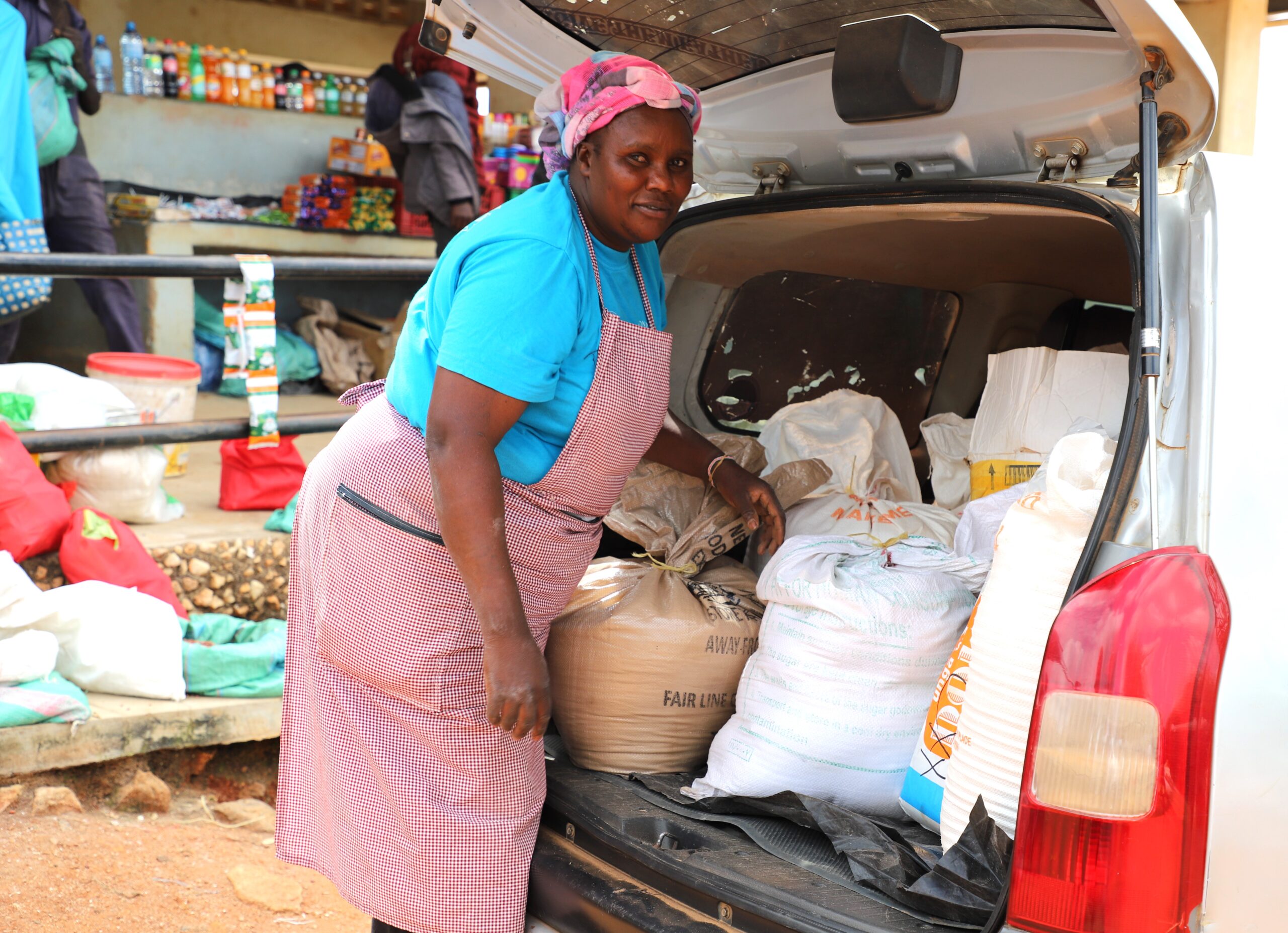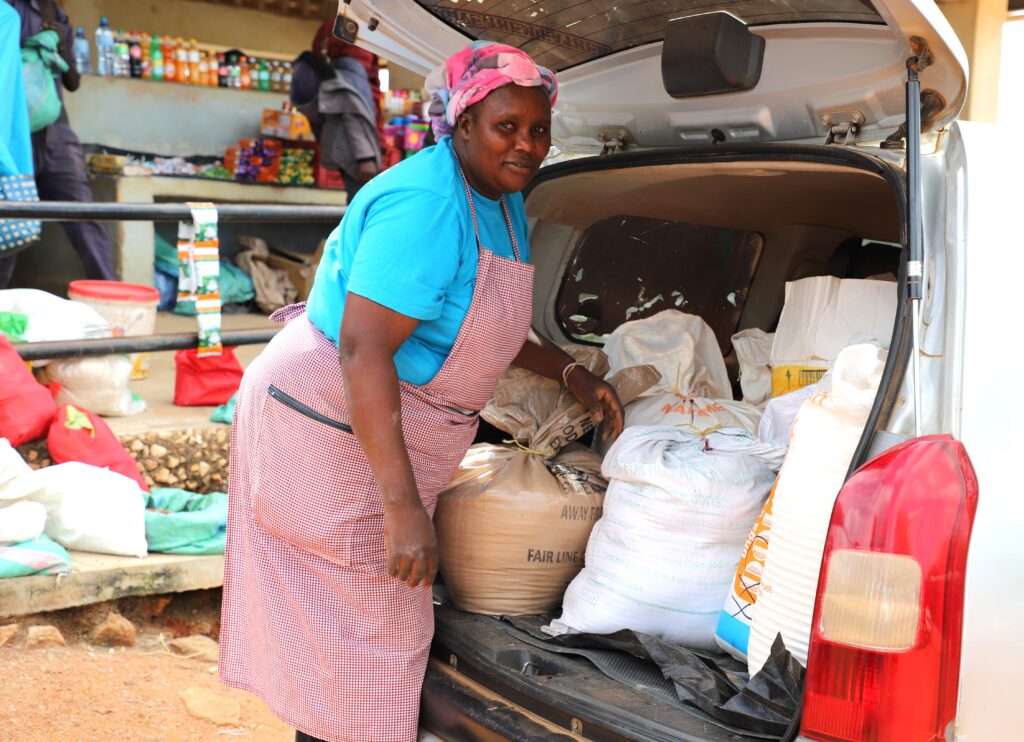
Job scarcity and the increasing cost of living, among other factors, have forced the migration of people in Northern Kenya in search of opportunities to earn a living. Migration patterns are not only in rural-to-urban areas but also from one urban area to another and vice versa for rural settings.
In 2012, 45-year-old Evelyn Gakii moved from her home village in Meru County and settled in the Oldonyiro area in Isiolo County to provide a better life for her family while her children were of school age. It was here that she began selling vegetables such as kale, tomatoes, and onions at a stand in the shopping center. Her business grew steadily allowing her to offer a wider range of products including cereals like beans, green grams, and black beans, earning her many customers within Oldonyiro as well as the neighboring Kipsing Village. Soon, she moved to a bigger space within the Oldonyiro livestock market.

The ripple effects of the COVID-19 pandemic and the increasing cost of commodities affected her business making it difficult for her to operate optimally. Often, she had to decide to stock some commodities and forego others. And the increased cost of fuel affected the transportation of commodities to her customers.
The United States Agency for International Development (USAID) through the Feed the Future Kenya Livestock Market Systems (LMS) Activity supported an economic stimulus grants initiative to support food traders to boost and revive their businesses. Evelyne was one of the traders who received $389 (KES 50,000), allowing her to stock up on commodities at a time when her funds were stretched. Additionally, the Activity provided continuous training to the Oldonyiro livestock market Savings and Credit Cooperative Society and encouraged members like Evelyne to continue saving. By 2023, she had saved $3,774 (KES 500,000) which acted as collateral for a loan allowing her to purchase a vehicle to support her food distribution efforts, saving her money that she had been spending on hiring transportation services.
The growth of her business enabled her to employ five people to load goods, attend to customers, and distribute goods, allowing them to earn a livelihood and support their families. Her business not only plays a crucial role in ensuring food access for residents in the area and beyond but also contributes to the growth of the local economy.
“When my daughter joined the university, I used the profits from my business to enroll her. This support from USAID LMS helped to support the stability of my business and reach my goal of educating my daughter,” said Evelyne.
Evelyne’s entrepreneurial journey at the Oldonyiro livestock market demonstrates the power of determination, resilience, and community support. Her success contributed to the well-being of her family and enabled her to educate her children, including one child in university. She has positively influenced aspiring entrepreneurs in the Oldonyiro area, with her success highlighting the impact of USAID support in ensuring the availability of food commodities to residents in Northern Kenya.
To date, USAID LMS has supported 5,497 small-scale and livestock traders in Garissa, Isiolo, Marsabit, Samburu, Turkana, and Wajir with economic stimulus grants to revive and boost their businesses. Additionally, the Activity revived 36 livestock markets which provide a trading place for Evelyne and approximately 35,000 traders.
Learn more about the Activity.
Learn more about our work in Kenya.








